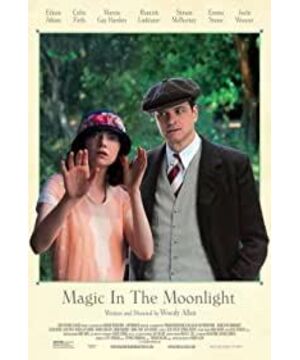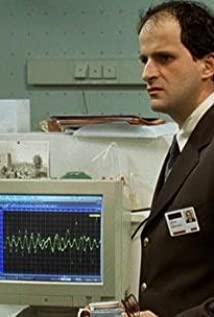Hong Kong people like Woody Allen very much. He has a nice Hong Kong name called "Arun Alive", It became vivid in an instant, and there was a feeling of a handsome boy in Mong Kok. This title is accompanied by the portrait of his big head, which is almost a symbol of film art in Hong Kong. He is pictured with huge glasses, a Cuban cigar, and a perpetual frown. Comrade Allen is a Hong Kong style. His plot and irony effects are in line with the fast-paced young people's life attitude of "returning to the house to find a meal", that is, a small space, a modern vision, and endless debate. Woody Allen is always mumbling to himself, most extreme in his iconic film "Annie Hall," where Allen, who is starring, withdraws from the play from time to time, stands in front of the camera, and gesticulates. Let's talk, it's a poignant romance, hilarious as it is, in which a neurotic and sensitive man and a neurotic and conceited woman are very self-love, Diane Keaton's shirt-and-vest look is popular, I remember that I bought a set of shirts and trousers after watching this movie that year, and I felt very American and very New York. Back to Woody Allen's "Confessions to the Camera". A reporter once interviewed him and asked him when he would know to stand aside and speak to the audience. He said that he did not deliberately think about this issue, but just intuitively thought it was the case. This lonely, sentimental chatter that fills nearly every one of his films gives a sense of how much a director he wants to speak to his audience. It varies from person to person, some people love his self-talk, while others get annoyed by the long, boring self-talk-whether he plays it himself, or uses other actors, who use endless raps The way in which the state of mind or the author's thoughts is represented is certainly irritating enough, after all, which seems to imply a different didactic tendency; however, for an audience who loves tirade and communication, Woody Allen is one of the few who will. An actor who tells a story to the end and describes a point of view thoroughly. In "Annie Hall," his muttering from beginning to end finally illuminates his own heart. At the end of the recently popular "Blue Jasmine", the famous few minutes of confession raised a certain kind of banter in desperation, and created an atmosphere of collapse of everyone in this black humor. In the film, Jasmine, played by Cate Blanchett, was transformed from a noble lady into a low-level person without support overnight. However, she stubbornly tried to continue living in the pride of the past, the reality of nothing and her inherent middle-class vanity. A huge, ugly fault formed between them. It's actually a familiar theme, "The Fall of the Middle Class," or "Middle Class Crisis," and without Woody Allen's murmur at the end, the film would have Maybe it will fall into the themes of going with the flow. Kate won the Academy Award for this film, and has to owe it to the last few minutes of her broken confession, because at the end of the film the director finally hints at his remarkable discovery: she is suffering, not because of bankruptcy, but because of loneliness . For humans with advanced language access, nothing is more natural than speaking, and nothing is more lonely than speaking. In Anne Hall, we can clearly see that the hero and heroine, despite their dialogue, speak two completely different languages - they both speak English, but they will never understand what the other is saying , until the day they truly love each other. In the film, the man pays attention to the blow he takes emotionally, and is always negative, analytical, and arrogant, while the woman is more abstract and romantic, and she is reading poetry. The duo often give rise to the illusion that men are more down-to-earth than women, and they babble and talk to themselves, leading and successfully misleading the vast majority of the audience. Colin Firth in "Magic Moonlight," mumbling to express his refusal. In the film, he is designed as a magician who believes in reason and experience. He meets the "psychic medium" Emma Stone by chance. . During this process, he always used resolute self-talk to resist believing that what he saw was true. However, when his aunt was hospitalized for emergency treatment, when he bowed his head and prayed, he realized how absurd all this was, and he went back to expose it. The trick of the "medium" discovered their love for each other, and he resisted it instinctively with more self-contradictory self-talk, just as he resisted the mystery instinctively as an atheist. But when Emma Stone accepted the marriage proposal of the rich man, he suddenly realized that there is a mystery in this world, he needs this mystery, he needs love. The film represents another theme Woody Allen murmurs to himself: pride. Whether it's Colin Firth in "Magic Moonlight" or Jasmine in "Blue Jasmine", they are equally desperate to refuse to accept change with crazy self-talk when their life situations are turning We've seen how human pride can manifest human misery, abomination, and drama in a variety of cultural contexts. He went back to debunk the tricks of the "spiritual medium" and discovered their love for each other, and he resisted that love instinctively with more self-contradictory self-talk, just as he instinctively resisted the mystery as an atheist. But when Emma Stone accepted the marriage proposal of the rich man, he suddenly realized that there is a mystery in this world, he needs this mystery, he needs love. The film represents another theme Woody Allen murmurs to himself: pride. Whether it's Colin Firth in "Magic Moonlight" or Jasmine in "Blue Jasmine", they are equally desperate to refuse to accept change with crazy self-talk when their life situations are turning We've seen how human pride can manifest human misery, abomination, and drama in a variety of cultural contexts.
View more about Magic in the Moonlight reviews











